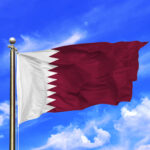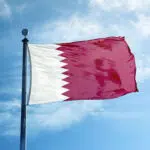If you’ve ever fancied trying to learn some Arabic, then Arabic Language Day on December 18 is the day to start. Dating back more than a millennium, Arabic was born out of Proto-Semitic languages of the ancient Middle East. Today, it’s spoken by more than 400 million people in 25 countries.Arabic speakers gave us some of civilization’s most important tools, including algebra, chemistry, and the toothbrush. Arabs had a strong influence on European music, culture, and science. Can’t live without coffee? You can thank the Yemenis of the 9th century for bringing it to you!
History of Arabic Language Day
One of the world’s most ancient languages and the sixth most commonly spoken in the world, Arabic originated in the Proto-Semitic languages of the Middle East in the 7th century. The word “Arab” means “nomad,” hinting at the language’s roots in the nomadic tribes of today’s Arabian Peninsula.Most of our knowledge of Classical Arabic comes from the Qur’an, Islam’s holy book. The scripture is the first major record of the written Arabic language and provides valuable insight into the structure of the old language. Today, over one billion Muslims study Arabic in order to read the Qur’an in its original tongue.Like other Semitic languages, Arabic is written from right to left and contains some sounds that don’t exist in English or other languages. Arabic’s beautiful “alphabet” isn’t an alphabet at all, at least not in the phonetic sense we’re used to. In the abjad writing system, each symbol stands for a consonant, with accents providing the vowel sounds. Instead of capital letters, emphasis is created through the use of quotation marks.Most words are constructed from a basic, thematically related root. All words related to writing, for example, contain the letters “k, t, b,” augmented with additional word parts. In this way, you can understand a word’s category in the world by studying its root.Although learning Arabic might challenge the average English speaker, we can thank Arabic for a number of important and useful English words: algebra, alcohol, coffee, loofah, tariff, cotton, and many more English words come from Arabic roots.On December 18, 1993, the United Nations recognized Arabic as one of six official UN languages, acknowledging its importance and widespread use throughout the world.
Arabic Language Day timeline
An inscription on a temple near Aleppo, Syria is the oldest known record of written Arabic.
The Prophet Muhammad receives his first revelation, marking the birth of one of the world's largest religions.
The language is formalized and Arab scholars begin translating works from Greece, India, and China.
Sibovayh, a Persian scholar, codifies Arabic grammar and writes the first Arabic dictionary.
Arabic Language Day FAQs
Who is the father of the Arabic language?
Ya’rab is widely regarded as the “Father” of the Arabic language.
How many words are in the Arabic language?
The total number of words in the Arabic language varies depending on the source, but it is estimated to be anywhere between 90 and 500 million words.
Is it worth it to learn Arabic?
Over 400 million people throughout the world speak Arabic, so if you enjoy communicating with others, and are a social person, then yes, it is.
How To Celebrate Arabic Language Day
-
Learn a few Arabic words
Use a language app to learn some basic Arabic words and phrases. Start with simple greetings and small talk phrases so you can try having a conversation with a friend.
-
Practice with an Arabic-speaking friend
Once you’ve got a few phrases under your belt, call up an Arabic-speaking friend and try them out.
-
Read some Arabic poetry
Sometimes called “the language of poetry,” Arabic was spoken (and written) by some of the world’s leading poets.
5 Fascinating Facts About Arabic
-
There are no capital letters
Quotation marks are used to create emphasis instead.
-
Arabic has hundreds of words for "camel
These include a word that means "a camel frightened of anything" and "a female camel that walks ahead of other camels.
-
Arabic is written right to left
Like all other Semitic languages, Arabic script is written right to left.
-
Arabic is only written in cursive
Arabic letters always connect to each other in both written and typed Arabic. There is no "print" type.
-
Arabic has no contractions
Unlike English, where contractions and abbreviations are common, Arabic does not combine words to shorten them.
Why Arabic Language Day is important
-
Arabic is the language of science
Arabic speakers have played instrumental roles in the development of mathematics, chemistry, and medicine. Medieval Europeans brought back knowledge from the Middle East and North Africa, helping to bring Europe out of the Dark Ages and into the Renaissance and the Age of Enlightenment.
-
Arabic is one of the world’s oldest languages
Arabic has been around for more than a millennium and continues to gain new speakers. In addition to native speakers, more than a billion people worldwide learn Arabic to study the Qur’an.
-
Many English words derive from Arabic
Over 7,000 words in the English language have Arabic roots, with over 500 of them still in common usage today.
Arabic Language Day dates
| Year | Date | Day |
|---|---|---|
| 2022 | December 18 | Sunday |
| 2023 | December 18 | Monday |
| 2024 | December 18 | Wednesday |
| 2025 | December 18 | Thursday |
| 2026 | December 18 | Friday |


























